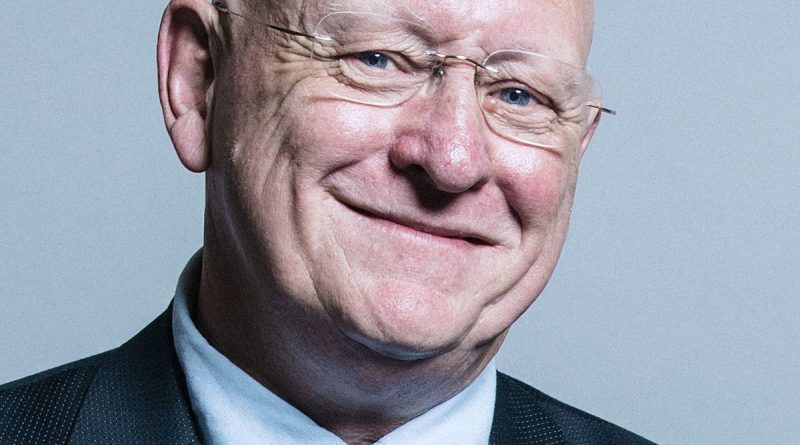Hywel Williams – 2022 Speech on the Australia and New Zealand Trade Bill
The speech made by Hywel Williams, the Plaid Cymru MP for Arfon, in the House of Commons on 12 December 2022.
It is a pleasure to follow the hon. Member for Strangford (Jim Shannon) for once. It is a unique experience.
New clause 15, standing in my name and in the names of my hon. Friend the Member for Ceredigion (Ben Lake) and my right hon. Friend the Member for Dwyfor Meirionnydd (Liz Saville Roberts), would require an assessment of the impact of the procurement chapters on different sectors of the Welsh economy. It is worth noting that the Senedd’s Economy, Trade, and Rural Affairs Committee has called for future trade deals to include impact assessments for the sectors and sub-sectors in Wales, which is important.
The assessments published so far for both the Australia and New Zealand free trade agreements are light on Welsh-specific detail, particularly regarding the potential sub-sectoral and regional impacts within Wales. Understanding the full impact of FTAs on the Welsh economy is necessary to assess what support businesses and organisations will need from the Welsh and UK Governments to prepare for implementation. The better the economic information available to Westminster and Senedd Ministers, the more effectively this can be done. As has been said, farming is not a five-minute occupation; it takes 10, 15 and 20 years.
I urge the UK Government to commit to publishing cumulative assessments, updated every time a new FTA is signed, showing the impact of post-Brexit trade policy on Wales’s economy and on the UK economy. That is particularly important for our agriculture and semi-processed food sectors. As a result of the agreement with Australia, the agriculture and semi-processed food sectors across the UK are expected to see a reduction in gross value added of £94 million and £225 million, respectively. The New Zealand agreement is expected to lead to a reduction of £48 million and £97 million, respectively.
Welsh farming unions have warned that both FTAs have set a damaging precedent for unfettered access to agricultural produce. We need to understand how individual procurement agreements and individual FTAs impact different sectors, and how those sectors are affected in the long term by post-Brexit trade policy. Many in those industries believe that Ministers were dashing heedlessly for glossy headlines and failing to fight for the interests of the Welsh and the UK economies, as we have heard. Rather than plugging the Brexit-sized hole in trade, these tiny trade deals will be a body blow to Welsh agriculture and food production. In general, they are not of great interest across the UK, but they are of huge interest to Welsh agriculture and food reproduction.
Today’s debate narrowly relates to the procurement chapters of both FTAs. It looks like the control that we supposedly took back from the EU goes no further than the Minister. Had Parliament and the devolved legislatures been able to properly scrutinise these deals, the former Environment Minister, the right hon. Member for Camborne and Redruth (George Eustice), might not have been on his feet just a month ago criticising the Australia FTA for giving away too much for too little in return. Plaid MPs have met both the Australian and New Zealand ambassadors. Without divulging anything improperly, I would say that both were very pleased with the deal that they secured, and more than a little surprised by the UK’s generosity.
The right hon. Member for Warley (John Spellar), who is not in his place and is very much in favour of Brexit, talked about the value of free trade. He would profit, as would many people, from reading the proceedings of the Exiting the European Union Committee, on which I served for a while. We had before us Mr Pascal Lamy, who was twice Trade Commissioner for the EU, and also head of the World Trade Organisation. He said that all trade, in theory, is free, and that tariff and non-tariff barriers are there partly as bargaining chips. If we abandon those bargaining chips, as appears to have happened to a great extent in these two FTAs, we have nothing to offer in return. What do we get? Happy ambassadors from countries that have profited enormously and our own sectors, such as agriculture and food production, dismayed because so little has been secured.
We believe that MPs and the devolved Administrations should have full votes on the objectives of each future trade deal, and access to negotiating texts for that very reason—to ensure that the people of Wales, Scotland and parts of England and Northern Ireland are getting a good deal. Giving the Welsh Government a say is vital if we want trade deals that enhance rather than undermine our local economies. For example, had the Welsh Government been able to amend the FTAs, we would have likely seen a push for geographical indications in the UK-New Zealand FTA. That would have proved extremely valuable for Welsh lamb and Welsh beef, as I am sure the trade body Hybu Cig Cymru would confirm.
I add my support to new clause 6 tabled by the hon. Member for Inverness, Nairn, Badenoch and Strathspey (Drew Hendry). NFU Cymru has argued forcefully that the use of geographical indicators would have allowed Wales to differentiate our products in the world market, thus accessing a premium and increased profitability. I add our support to amendments 3 to 5, tabled by the Scottish National party. Both the Welsh and Scottish Governments have expressed their grave concerns about the use of concurrent powers in this legislation.
On Second Reading, the former Secretary of State for International Trade, the right hon. Member for Berwick-upon-Tweed (Anne-Marie Trevelyan) told this House that discussions were taking place with the Welsh Government on their request for the Bill to be amended to include concurrent-plus powers. Therefore, I would appreciate it if the Minister updated the House on what progress has been made in those discussions with the Welsh Government.


